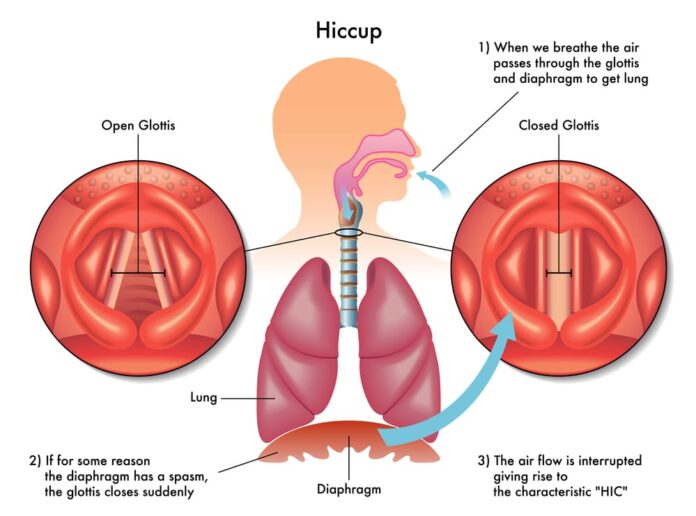Overview Of Hiccups
A hiccup is an unintentional movement (spasm) of the diaphragm, the muscle at the base of the lungs. The spasm is followed by quick closing of the vocal cords. This closing of vocal cords produces a distinctive sound.
Causes Of Hiccups
Causes may include:
- Abdominal surgery
- Disease or disorder that irritates the nerves that control the diaphragm (including pleurisy, pneumonia, or upper abdominal diseases)
- Hot and spicy foods or liquids
- Harmful fumes
- Stroke or tumor affecting the brain
- There is usually no specific cause for hiccups.
Exams & Tests
If you need to see your provider for hiccups, you will have a physical exam and be asked questions about the problem.
Questions may include:
- Do you get hiccups easily?
- How long has this episode lasted?
- Did you recently eat something hot or spicy?
- Did you recently drink carbonated beverages?
- Have you been exposed to any fumes?
- What have you tried to relieve the hiccups?
- What has been effective for you in the past?
- How effective was the attempt?
- Did they stop for a while and then restart?
- Do you have other symptoms?
- Additional tests are only done when a disease or disorder is suspected as the cause.
Treatment Of Hiccups
To treat hiccups that do not go away, the provider may perform gastric lavage or massage of the carotid sinus in the neck. DO NOT try carotid massage by yourself. This must be done by a provider.
If the condition continues, medicines may help. Tube insertion into the stomach (nasogastric intubation) may also help.
In very rare cases, if medicines or other methods do not work, treatment such as phrenic nerve block may be tried. The phrenic nerve controls the diaphragm.



